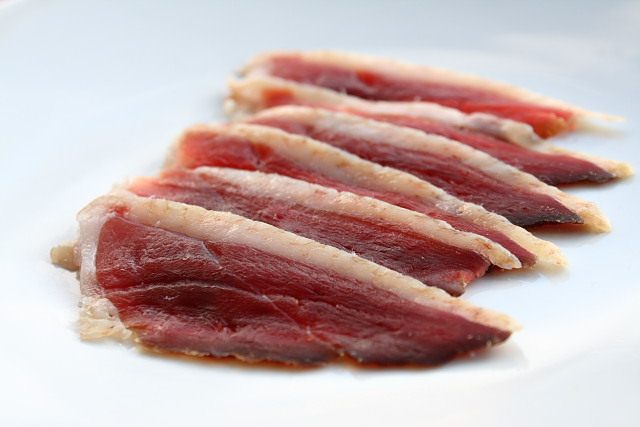Salt gets a bad press.
I know it’s responsible for the untold misery of heart disease, high blood pressure and a thousand other fairly major medical complaints, but it also has a near mythical ability to preserve food and concentrate flavour, the closest thing to culinary alchemy there is.
This duck prosciutto, a ham born through nothing more than the application of salt to a duck breast, is simplicity itself, and at no more than five minutes work, spread over a few days, it’s a great introduction to the magical world of charcuterie.
First, make a basic curing mixture of 300g of rough sea salt and 300g of golden caster sugar.
Add a small handful of rosemary leaves, bashed up and bruised a little in a pestle and mortar, or just chopped through on a board, along with three or four crushed juniper berries and three peeled and squashed cloves of garlic.
Crush half a teaspoon of coriander seeds, a single clove, half a teaspoon of black peppercorns and a star anise together in the pestle and mortar and stir into the salt and sugar mix.
Sprinkle the cure over two plump duck breasts in a non-reactive bowl. A plastic box is best, small enough to contain the duck breasts neatly. Put the box in the fridge and leave for three days.
The salt will work it’s magic, drawing out the duck’s moisture and gently drying it out. The cure will turn to a brine, and the meat will darken.
After three days, rinse the breasts under cold running water and pat dry on a tea towel before individually wrapping and tying them in muslin. Hang the duck in a cool, airy place for a week to dry – a dry cellar or a shed or garage would be ideal.
To serve, slice the ham at an angle, as thinly as possible.
The ham tastes delicate and mellow, sweet and not at all salty. There are hints of juniper and rosemary.
This recipe is from Trish Hilferty and Tom Norrington-Davies’ wonderful Game: A Cookery Book.

